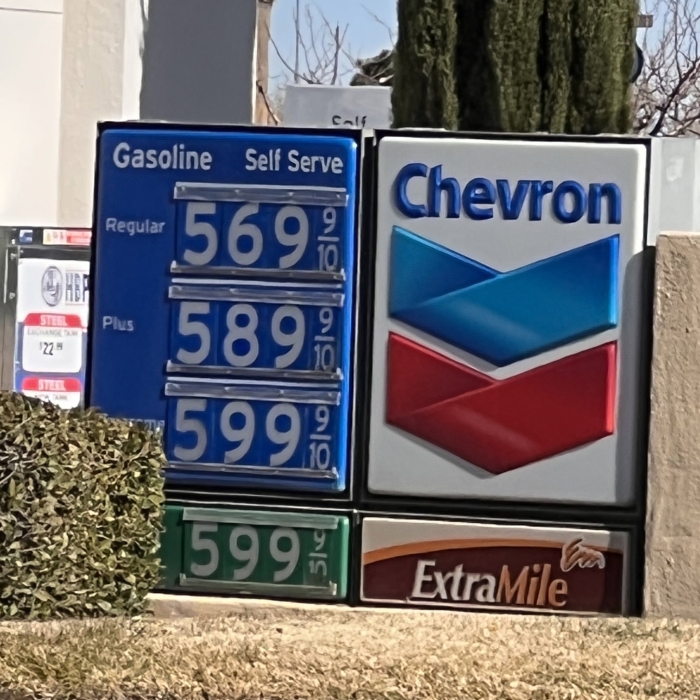Good news! Biden says to hell with deficits!
Though I understand why it's done, I'm still annoyed that Biden and Democrats keep on saying we will pay for [whatever] by taxing [whomever].
It's not the way the federal budget works, and it just keeps alive the idea that the federal budget works like your household budget. Taxes don't pay for anything. Also, it makes us mentally dependent on the largesse of the wealthy to fund these initiatives, which again is not true.
“Taxes don’t pay for anything.”
Let’s just get rid of them then...
I wish there was a dislike button.
jimmurphy said:
“Taxes don’t pay for anything.”
Let’s just get rid of them then...
I wish there was a dislike button.
That's exactly what I'm talking about.
The Idea That Deficit Spending Is a Burden on Our Children Is the Dumbest Propaganda
here's a good piece on the role of taxation
https://splinternews.com/the-dangerous-myth-of-taxpayer-money-1819658902
Stephanie Kelton explains the myth of deficits.
Don't forget - a dollar in the deficit means one in your pocket! (or someone's pocket anyway)
excellent podcast on today's economics. You can read the transcript if you hate podcasts, as I do.
"anything we can actually do, we can afford"
John Maynard Keynes
Deficits have nothing to do with gas prices.
Something else is going on that's affecting them. It's in all the newspapers.
drummerboy said:
current inflation has nothing to do with deficits.
try again.
You cannot correctly say that so definitively.
The spike in demand, particularly for goods, influenced by the deficit spending, and the inability of the current supply chain to keep up, are certainly factors in inflation.
Try again.
(And yes, gas prices are a completely different matter).
jimmurphy said:
drummerboy said:
current inflation has nothing to do with deficits.
try again.You cannot correctly say that so definitively.
The spike in demand, particularly for goods, influenced by the deficit spending, and the inability of the current supply chain to keep up, are certainly factors in inflation.
Try again.
(And yes, gas prices are a completely different matter).
maybe not that definitively, but probably just a tad less definitively.
U.S. posts smallest budget deficit in two years as employment rebounds
jimmurphy said:
drummerboy said:
current inflation has nothing to do with deficits.
try again.You cannot correctly say that so definitively.
The spike in demand, particularly for goods, influenced by the deficit spending, and the inability of the current supply chain to keep up, are certainly factors in inflation.
Try again.
(And yes, gas prices are a completely different matter).
most of Europe is suffering from increased inflation also - without the huge spending of the U.S.
Explain that.
And do you think there has been a spike in demand for food?
good explainer on inflation's more likely current causes
https://www.nytimes.com/2022/02/28/opinion/larry-summers-inflation.html
jimmurphy said:
drummerboy said:
current inflation has nothing to do with deficits.
try again.You cannot correctly say that so definitively.
The spike in demand, particularly for goods, influenced by the deficit spending, and the inability of the current supply chain to keep up, are certainly factors in inflation.
Try again.
(And yes, gas prices are a completely different matter).
I do the grocery shopping for our household, and the price increases I see are uneven. One example, cat food price increases (and shortages) that are not equivalent to the same for Coca Cola or other fizzy drinks. [ETA: although for some reason flavored seltzer is the exception]
"Deficit spending" and "pandemic payments" aren't the reason for these product-specific variances, in my humble opinion.
nohero said:
jimmurphy said:
drummerboy said:
current inflation has nothing to do with deficits.
try again.You cannot correctly say that so definitively.
The spike in demand, particularly for goods, influenced by the deficit spending, and the inability of the current supply chain to keep up, are certainly factors in inflation.
Try again.
(And yes, gas prices are a completely different matter).
I do the grocery shopping for our household, and the price increases I see are uneven. One example, cat food price increases (and shortages) that are not equivalent to the same for Coca Cola or other fizzy drinks. [ETA: although for some reason flavored seltzer is the exception]
"Deficit spending" and "pandemic payments" aren't the reason for these product-specific variances, in my humble opinion.
the cat food shortage has been going on for 2 years now.
As I understand it, MMT says that inflation is a result of demand exceeding the productive capacity of an economy. So deficits, in and of themselves, don't really tell us much-- you'd have to posit that money faithfully, consistently, and accurately corresponds to productive capacity, which it doesn't (and I'm not sure anyone argues otherwise, MMT or not? Maybe buillionism would be an example of this, and arguably far fringe of hard-money cranks?).
Given the bull-whip effect from the pandemic, I have a hard time imagining an alternative where inflation wasn't happening, though perhaps it would not be running as high. I'm not sure the political and other fallout would be any better in that case though -- our hypothetical counterparts would likely be poorer, and being told that there was an alternate timeline where they had more money in their pockets but inflation was even higher probably would be of little comfort.
Speaking of inflation: The current national average of $4.25 for gas (but, sure, keep posting photos from Cali) is equivalent to $3.33 in 2008 — 19% below the $4.11 record reached that year.
Also, gas prices were generally higher from 2011 to 2014 (adjusted for inflation) than they are now. Dissension among OPEC Plus members in 2014 led to an oil crash that got us accustomed to unusually low gas prices for the last several years.
ml1 said:
nohero said:
I do the grocery shopping for our household, and the price increases I see are uneven. One example, cat food price increases (and shortages) that are not equivalent to the same for Coca Cola or other fizzy drinks. [ETA: although for some reason flavored seltzer is the exception]
"Deficit spending" and "pandemic payments" aren't the reason for these product-specific variances, in my humble opinion.
the cat food shortage has been going on for 2 years now.
Yes, but there's been more of a price increase lately (on a percentage basis) compared to the prices of other "basics" (cat food is a basic grocery need, after all).
the NYT is reporting record breaking prices.
No. Wrong.
drummerboy said:
And yet when gas prices are reported on, the inflation adjusted price is almost never mentioned.
the NYT is reporting record breaking prices.
No. Wrong.
From the last three days:
Americans everywhere are feeling the sting of rising gasoline, which reached a national average of $4.07 a gallon on Monday, up more than 10 percent from a week ago. The last time consumers dealt with such a period of sharp price increases was when the global economy came undone during the 2008 financial crisis. (At that time, the average price per gallon reached roughly $5.37 when adjusted for inflation.)
https://www.nytimes.com/2022/03/08/business/high-gas-prices.html
The average price of a gallon of gas reached $4.009 on Sunday, according to AAA, a 57-cent increase from a month ago. The all-time high was in July 2008, when the average price hit $4.114 a gallon. (When factoring inflation, that would be equivalent to $5.25 a gallon today.)
https://www.nytimes.com/2022/03/06/business/gas-prices-4-dollars-per-gallon.html
In the United States, the national average price of a gallon of regular gasoline, which had already surged in recent weeks, reached $4.173, not adjusted for inflation, a new high and an average increase of about 72 cents from only a month ago, according to AAA.
https://www.nytimes.com/2022/03/08/us/politics/biden-oil-ban-russia-ukraine-putin.html
In 2008, the last major run-up in gas prices, the cost of a gallon in California reached $4.588. If you translate that into today’s dollars, it would be $5.83, far higher than the current price at the pump.
https://www.nytimes.com/2022/03/09/us/california-high-gas-prices.html
DaveSchmidt said:
drummerboy said:
Oopsie.At least you always learn.
of course, it's not like I dreamt it. I think the editors need to have a meeting.
https://www.nytimes.com/2022/03/08/business/us-gas-prices-record.html
U.S. gas prices hit a high: $4.17 a gallon.
Gas prices, which have been steadily rising for weeks as the conflict in Ukraine has escalated, hit a new high in the United States on Tuesday.
The average price of a gallon of regular gasoline reached $4.173 on Tuesday, according to AAA, surpassing the previous high in July 2008, when the national average was $4.114. The prices are not adjusted for inflation.
drummerboy said:
most of Europe is suffering from increased inflation also - without the huge spending of the U.S.
Explain that.
And do you think there has been a spike in demand for food?
I mostly took issue with your certainty that current deficits had "nothing to do with inflation". The certainty of your position. Economists are struggling to explain the current economy given its complexity, but you, armchair internet economist, are able to make statements with certainty.
The relief acts put money in the pockets of people who will spend it. They have reacted by doing just that. At a time when the supply chain is clogged and having difficulty keeping up with that demand.
And yes, give hungry people money and they will spend it on food.
jimmurphy said:
drummerboy said:
most of Europe is suffering from increased inflation also - without the huge spending of the U.S.
Explain that.
The relief acts put money in the pockets of people who will spend it.
“Huge” is a relative term, but I believe Europe pumped pandemic money into its economies as well.
DaveSchmidt said:
Speaking of inflation: The current national average of $4.25 for gas (but, sure, keep posting photos from Cali) is equivalent to $3.33 in 2008 — 19% below the $4.11 record reached that year.
Also, gas prices were generally higher from 2011 to 2014 (adjusted for inflation) than they are now. Dissension among OPEC Plus members in 2014 led to an oil crash that got us accustomed to unusually low gas prices for the last several years.
The booming shale production was also a significant factor. Saudi Arabia turned on the spigots in the hope that it would cause shale producers to go out of business. A lot of them did. They had been drilling as many wells as possible. This time around they're being more disciplined.
btw - Oil prices plunged 13% today on the comments of the UAE that it was willing to increase output.
DaveSchmidt said:
jimmurphy said:
drummerboy said:
most of Europe is suffering from increased inflation also - without the huge spending of the U.S.
Explain that.
The relief acts put money in the pockets of people who will spend it.
“Huge” is a relative term, but I believe Europe pumped pandemic money into its economies as well.
I think you'll find that Europe's welfare states already had mechanisms to deal with the pandemic, whereas the U.S. had to come up with new spending. Since 2020 we've spent more than 5TR, I think, on new spending. I don't think European new spending comes close.
For Sale
Sponsored Business
Promote your business here - Businesses get highlighted throughout the site and you can add a deal.




















Well, Biden isn't helping things by saying that we need to raise taxes to "pay for it". That continues the fiction that the federal budget is like a household budget. Of course I understand why he's saying it. And certainly the taxes he wants to raise are warranted.
And in regards to the person you quoted, I do think that they are actually worried about the total cost, because again, they think the federal budget is like their own budget. Ideas like "making our children pay for it" are too ingrained in our culture. And even though deficit scolds have been warning about the evils of deficits for decades, none of their evils have ever come to pass. But that doesn't stop them.
All in all though, I'm encouraged that MMT is making headway